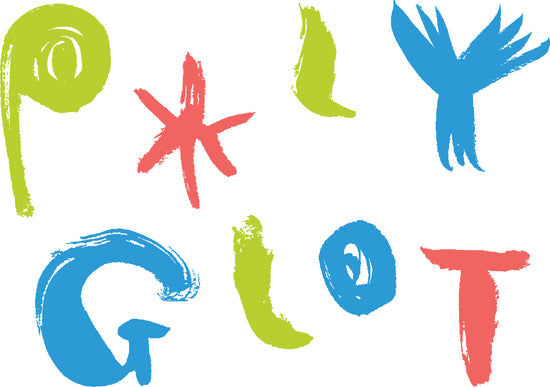「せめて日常会話」の間違いとは? 語学学習とは、どのようなプロセスで上達するのか?
多言語学習のトリヴィウムコースが始まってから何回となく、この問題についてご質問をいただきました。 それで、今回はこの問題について特集いたします。 せめて日常会話ぐらいと思っていませんか? 最近思うことのひとつは、ポリグロットに勉強に来てくれる方々の中に、「語学学習とは会話ができることだ」、と思い込んでいる方がいるということです。
翻訳とは、単にある言語を他の言語に言い換えることではありません。
原文の意図を他の言語で的確に表現すること、これが翻訳です。
翻訳はまず、対象となる言語を読み理解することから始まります。当然、翻訳者は対象とする言語に習熟していなければなりません。しかし、語学力だけで原文の理解が充分にできるわけではありません。言語は人間の活動の根幹であり、それゆえ背景に膨大な量の、様々な分野に渡る情報を包含しています。そうした広汎な情報に関する知識がなければ充分な理解は望めません。
次に、理解した内容を別の言語で表現するわけです。この場合、その言語は翻訳者の母国語であることが多いのですが、母国語だからといって語学能力が完璧だとはいえません。やはり、ここでも語学力が、それも母国語の語学力が問われることになります。そして、先ほど述べた言語の背景に関する知識が生かされることになります。
例えば原文では言明されていない情報 ─ 原文の話し手・読者には自明なことであえて文にする必要のない情報を訳文に入れるかどうか、入れるなら如何に、などの判断を翻訳者は下さねばならないからです。ある意味でこの時、翻訳者は原文に加工をくわえることになります。このことゆえに、翻訳とは、原文の意図を他の言語で表現することであると言ったのです。
【課題サンプル】
In the case of the Mantis Religiosa, however, it is possible at any time. It would seem that the insects don't recognize each other as members of the same species and so haven't developed signals or behavioral patterns preventing aggressions within the species.
In addition, the praying mantis is not choosy in what it eats. It doesn't specialize in certain prey and will even attack insects which are just as big as it is or even bigger.
After the meal remains stick to its forelegs and the mantis carefully cleans them to stop them losing their extreme mobility. One can't help being reminded of human arms, of human hands even, when watching how it cleans and skillfully uses its forelegs.
(以下省略)
翻訳のよしあしを左右するのは最終的には訳文です。ただし、翻訳には原文があり勝手気侭に文章を作るわけにはいきません。原文を外れてしまってはいくら良い文章でも意味がありません。
この原文に即してという中に、ひとつ気付きにくい点がありますので取り上げてみます。それはスピーチレベルです。フォーマルなものか、インフォーマルなものか。書き言葉か話し言葉か。それらを判断した上で訳者は、原文のスピーチレベルを訳文に反映させるか、反映させるとしたらどのようにするかを考えねばなりません。
次の例を見てください。 3つの文章は、意味は大体同じですがスピーチレベルが異なります。
3) When his dad died, Pete had to get another job.
2) After his father's death, Peter had to change his job.
3) On the decease of his father, Mr. Brown was obliged to seek alternative employment.
1) は非常にくだけた言い方で、 colloquial と呼ばれ、書き言葉として使われることはありません。 2)は普通の表現で、書き言葉としても話し言葉としても使われます。 3)の言い回しはかたい表現で、書き言葉あるいはあらたまったスピーチに使われるようなものです。いま試みに上記の3つの文章をスピーチレベルに即して訳してみると以下のようになります。
【課題例】
The importance of intellectual property (copyright, patents, industrial designs, trade marks and other protections of information) to the prosperity of a country implies a value judgment. We believe the creation of intellectual property is an important barometer of a nation's innovative powers and of its cultural and intellectual growth, and constitutes a resource which has to be nurtured and protected by adequate laws. But the size of the copyright industries is measurable.
The Prime Minister, calling intellectual property "such an important, though too often overlooked, subject" commissioned a study, the remit of which asks the question whether the Government "adequately encourages awareness of the potential economic value of intellectual property both as a traded commodity and otherwise." In the summary of this study, "Intellectual Property Rights and Innovation," Dr. Robin Nicholson, the Chief Scientific Adviser at the Cabinet Office, concluded that "while the Government devotes considerable resources to encouraging innovation generally, it does not give adequate priority to providing the system of intellectual property rights that British business requires.

ポリグロット外国語研究所の長年の学習メソッドを結集した通信講座です。
ヨーロッパ各国言語の初級、中級、上級コース、作文コース、実務翻訳コースがあります。
ご自身のペースで課題の提出をしていただきます。
丁寧な添削により、確実な語学力のレベルアップを実現します。
イタリア語通信講座
フランス語通信講座
スペイン語通信講座
ポルトガル語通信講座
ドイツ語通信講座
